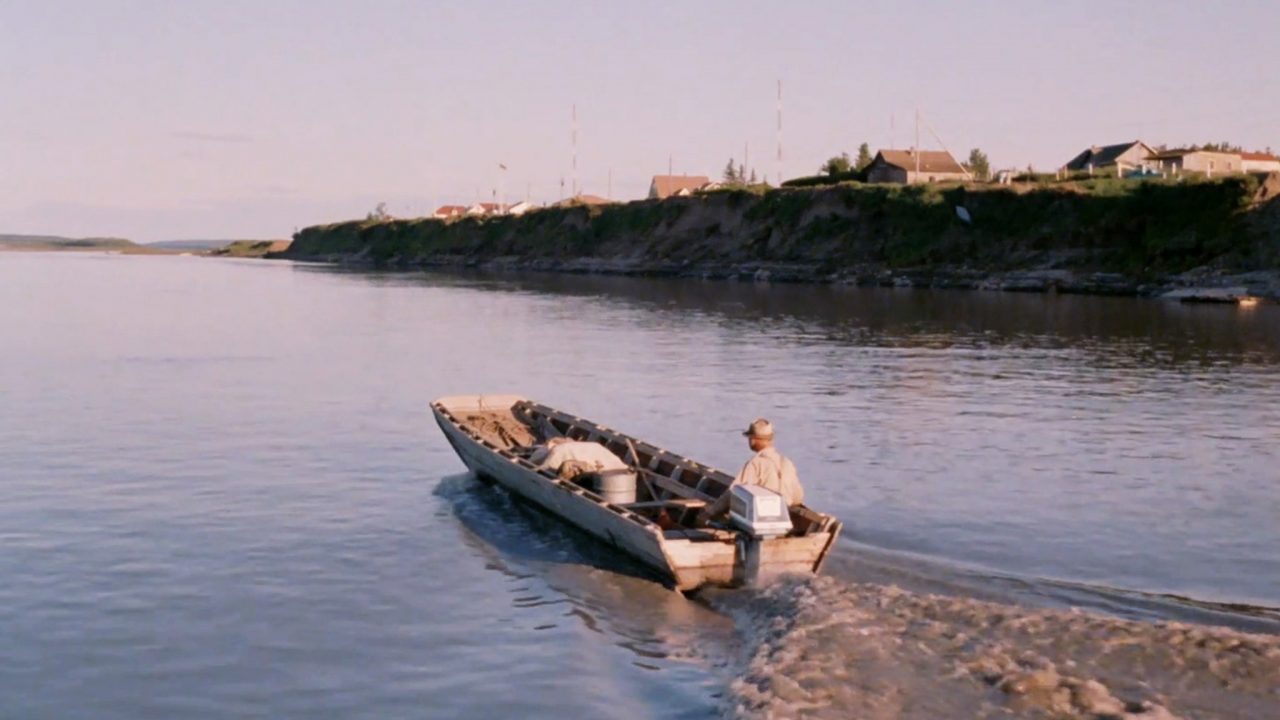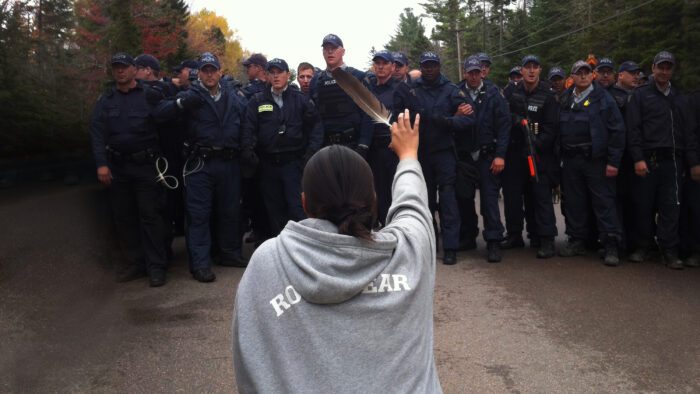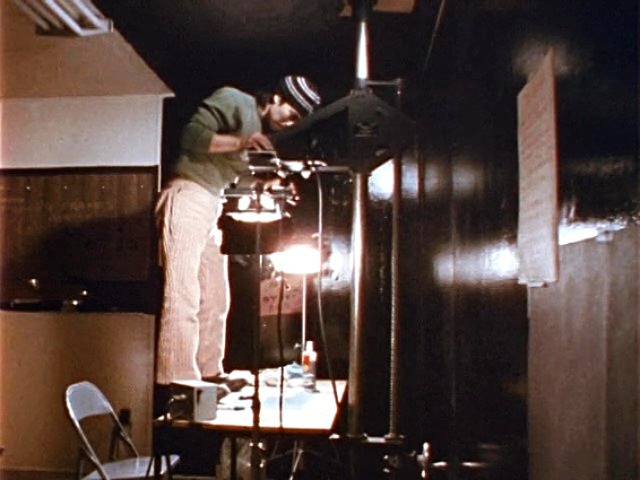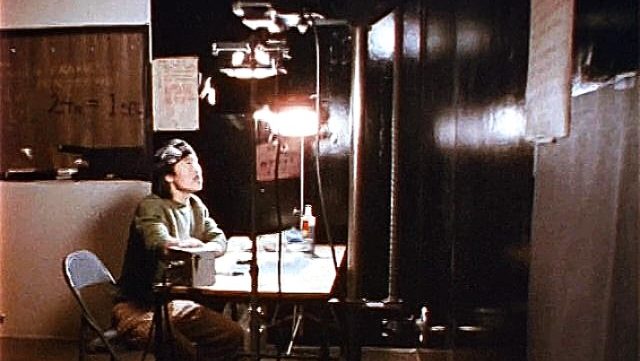
5 Best Theatrical Short Award Winners | Curator’s Perspective
5 Best Theatrical Short Award Winners | Curator’s Perspective
Going to the movies in the 1950s and 1960s was a very different experience than it is today. For one thing, the feature was accompanied by cartoons, newsreels or short films (sometimes even all three). The theatrical short was an important part of the movie experience. At the NFB, many of our productions from those decades were made specifically with the big screen in mind.
In this blog post, I want to highlight five films that graced our nation’s screens and went on to win the Canadian Film Award (the precursor to the Genie and the Canadian Screen Award) for Best Theatrical Short. Some of these are still considered classics today, while others are now forgotten but deserve to be (re)discovered.
Canada Carries On was the first theatrical series produced at the NFB. It ran throughout the Second World War and continued in peacetime before bowing out in 1959. The films in this series played all over the country, with a new episode coming out every month. The post-war films focused on Canadians in every aspect of their lives, especially the ones that were difficult to discuss but needed to be brought to light. In late 1950, the NFB released After Prison, What? as part of the series.
This short drama follows a man released from prison who finds that no one will hire him because of his record. With the help of the John Howard Society, he can go legitimate and live a normal life, one without shame. The actors in this film all hit the right notes, and its message is one of optimism. There is a terrific sequence in which our protagonist thinks the police are after him, and it’s shot in the best film noir tradition. At one point, the protagonist remarks that poverty is a big part of the overall problem of crime. The film received its Canadian Film Award on April 22, 1951, in a ceremony in Ottawa.
After Prison What?, Ronald Weyman, provided by the National Film Board of Canada
Three years later, on May 10, 1954, the NFB picked up another Best Theatrical Short award, for Farewell Oak Street, a 17-minute film on the building of the Regent Park public–housing project in Toronto. The short paints a picture of the squalor that existed on Oak Street. The crowded, vermin–infested slums were home to a population that had not benefitted from the post-war economic boom that many Canadians were enjoying. Oak Street was completely demolished, and the families that lived there were given access to affordable housing in the new Regent Park project. Gone were the poorly heated rooms and buildings where six families shared one bathroom. The film lays it on a bit thick, but its heart is in the right place. Lorne Greene narrates and one of the actors playing a tenant is a very young Kate Reid!
Farewell Oak Street, Grant McLean, provided by the National Film Board of Canada
The story of Dr. Frederick Banting and Charles Best was tackled in the 1958 short The Quest. (In case you don’t recognize these names, this is the duo that was instrumental in the discovery of insulin.) This 38–minute short has some terrific acting and depicts the good doctor and his assistant working in a laboratory at the University of Toronto one very hot summer in the 1920s. Although a good deal of the action takes place in the lab, the story is quite exciting. The film was awarded the Theatrical Short Award of Merit in a ceremony in Toronto on June 5, 1959.
The Quest, Stanley Jackson, provided by the National Film Board of Canada
The short film Nahanni was a sensation when it was released in 1962. It won the Silver Bear for short documentary at the 12th Berlin Film Festival in June of that year (and then went on to win five other international awards). It was subsequently released in 142 theatres across Canada in July. Reviews were excellent, with the Montreal Star calling it “a Canadian epic on film.” At the Canadian Film Awards, presented in May the following year, it won two awards, including a certificate of merit in the theatrical short category. It was versioned into 16 languages and sold around the world.
Nahanni tells the incredible story of 73-year-old Albert Faille, a man who’s on a journey to find a legendary lost gold mine in the Northwest Territories. This is not fiction. It is the portrait of a man who’s obsessed with his quest. The flesh may be weak but the fanatical desire to find the gold mine burns inside him. This spectacular documentary is greatly enhanced by its breathtaking shots of the Nahanni River and poetic narration, read by Canadian actor Douglas Rain (the voice of Hal in 2001: A Space Odyssey). A film that should be required viewing for all Canadians who wish to know more about our country.
Nahanni, Donald Wilder, provided by the National Film Board of Canada
In a similar vein as Nahanni, the short Morning on the Lièvre had been released by the NFB the year before. This film offers a beautiful, lyrical view of two paddlers travelling along the Lièvre River, northeast of Ottawa. This isn’t the intense struggle of man against nature that’s present in Nahanni. Instead, the film shows man in awe of the majesty of nature. It is accompanied by a reading of Archibald Lampman’s poem of the same name. The film had been shot in the autumn, and the colours are simply spectacular. This short also won a Silver Bear at Berlin, in 1961. A judge at the Edinburgh Film Festival (where it won a diploma of merit) called it “the finest film of the 120 at this festival.”
Morning on the Lièvre had its Canadian premiere in Buckingham, Quebec (close to where the film had been shot) in November 1961. It was then released throughout the country and was seen by a staggering 100,000 people during a 28-day run at Montreal’s Capitol Cinema alone. The Canadian Film Award it received in May 1962 certainly came as no surprise.
Morning on the Lièvre, David Bairstow, provided by the National Film Board of Canada
These are just some of the great theatrical shorts that the NFB has produced over the years. If you’re interested in reading more about award-winning shorts, please have a look at my posts on Cornet at Night, The Railrodder and Blake, as well as my post on the Canada Carries On series.
Enjoy the films.



